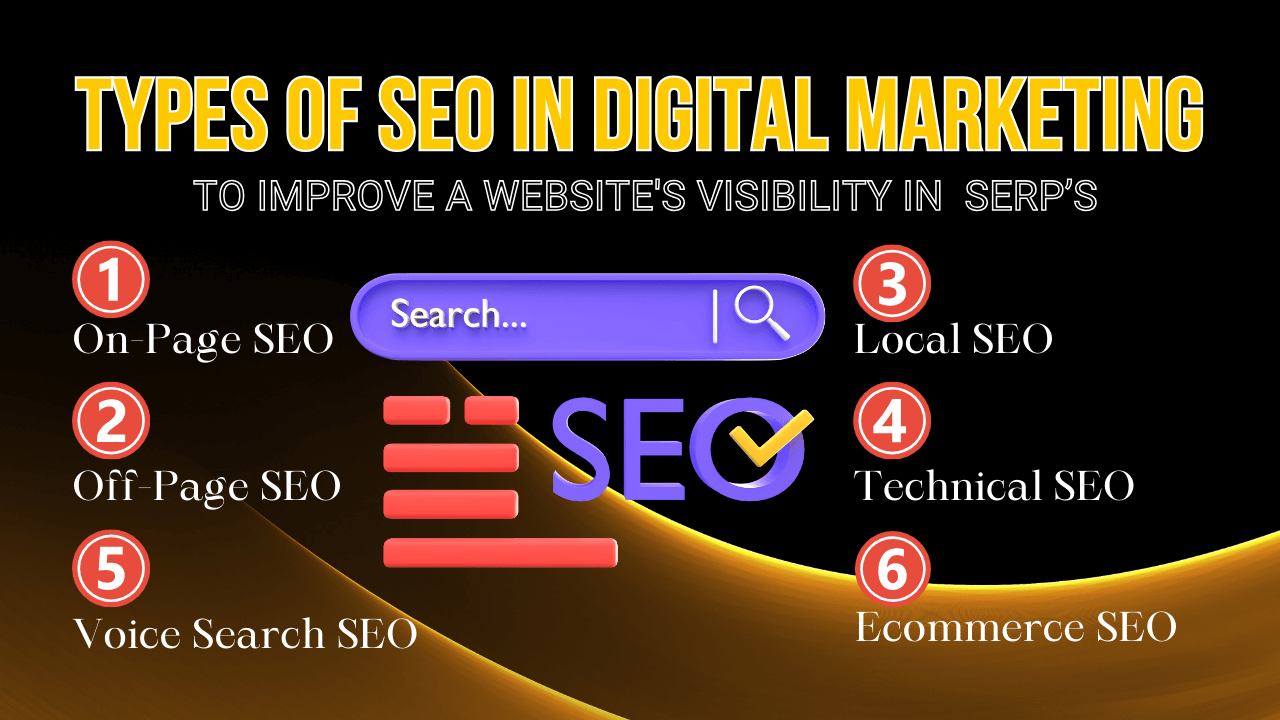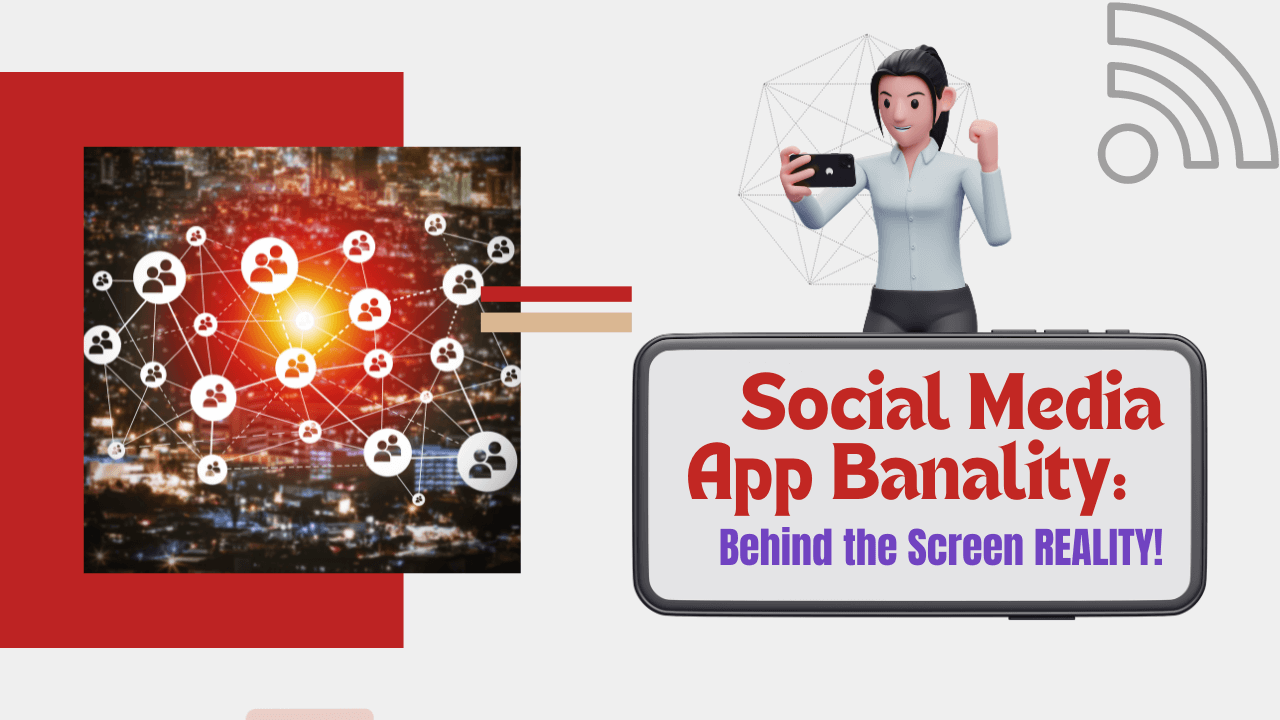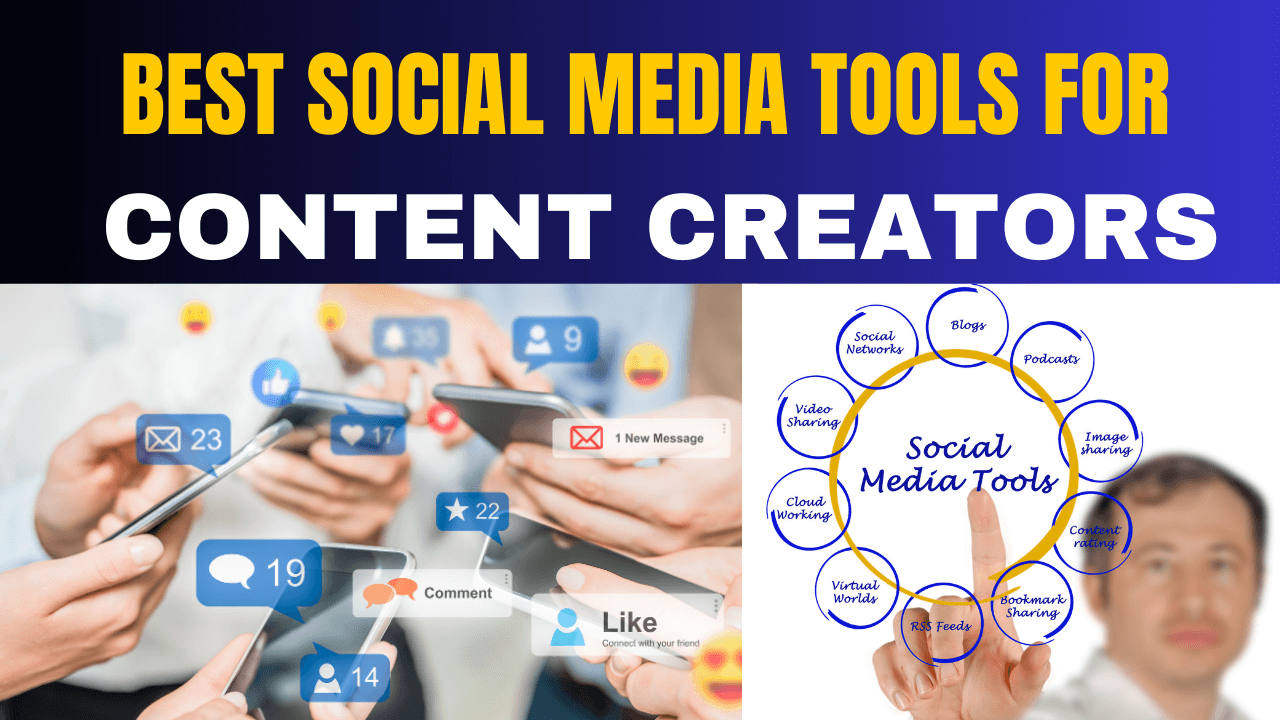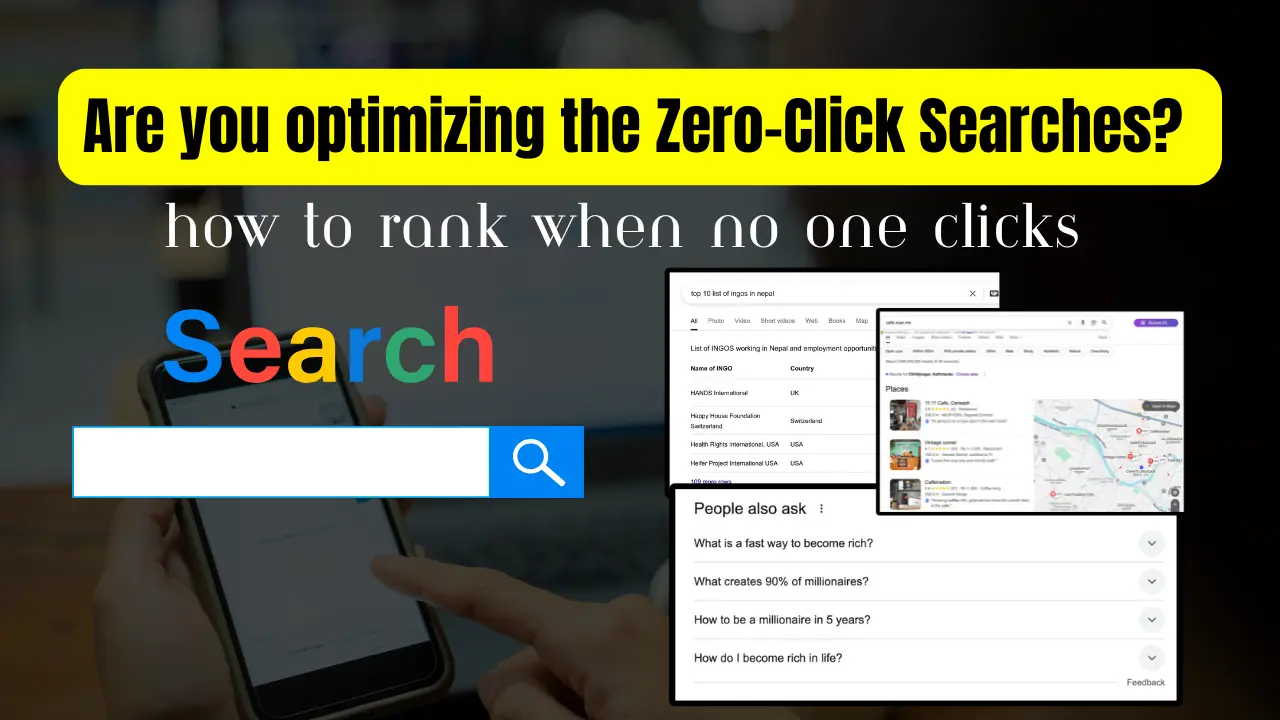Top 10 AI Marketing Apps & Benefits – Power of Artificial Intelligence
2 years agoMaximize Visibility: Digital Marketing Strategies for Hospitals
1 year ago -
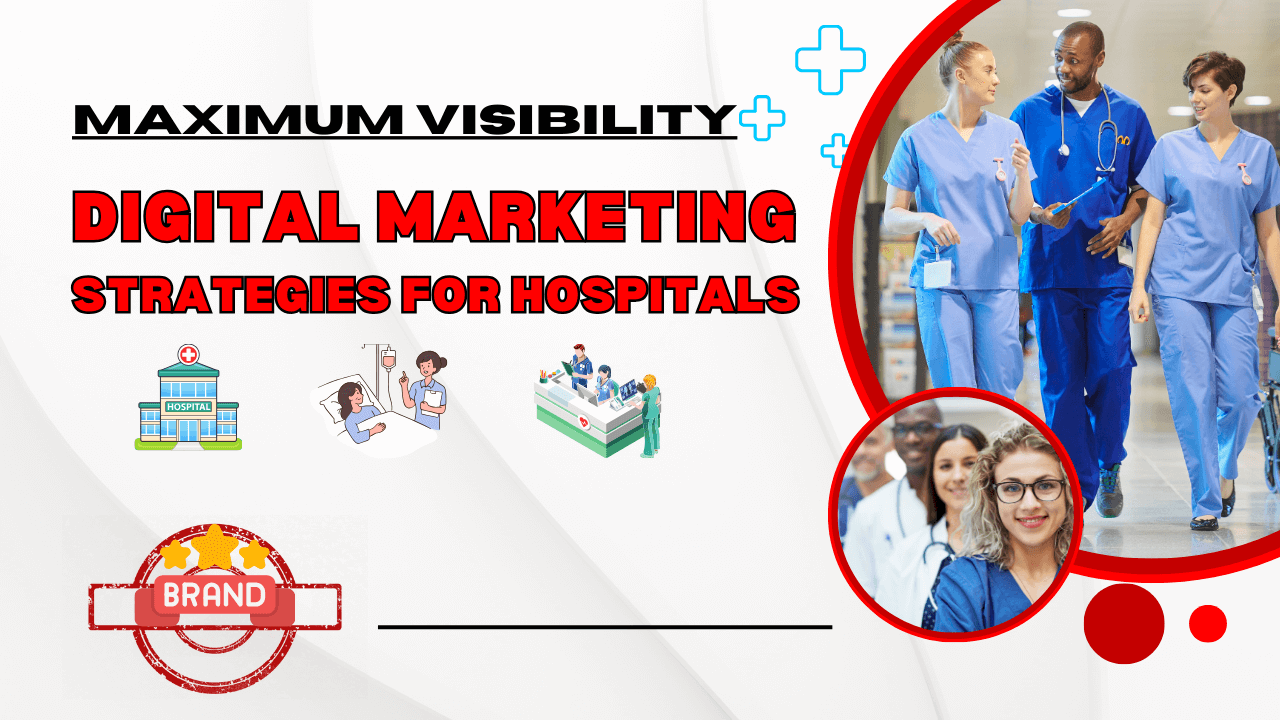
Digital marketing strategies for hospitals and healthcare sectors have become increasingly important to establish a strong online presence, engage with patients, and promote their services effectively. With the rise of online platforms and the increasing reliance on digital information, healthcare providers must adapt their digital marketing strategies to stay relevant and competitive.
Gone are the days when traditional marketing methods alone could suffice in attracting patients to hospitals. With the proliferation of online channels and the increasing reliance on digital platforms for information, hospitals must embrace digital marketing to stay competitive. Benefits of Digital marketing for hospitals include reaching a broader audience, engaging with patients across different touchpoints, and creating messaging for specific demographics.
“Take care of your body. It’s the only place you have to live in.”
– Unknown
Table of Contents
Importance of Digital Marketing Strategies for Hospitals
Digital Marketing strategies include Search Engine Optimization (SEO), Pay-Per-Click (PPC) advertising, social media management, content marketing, and email campaigns to maximize visibility on digital platforms, engage with patients, and promote their services effectively. Scope of Digital marketing has become an essential tool for healthcare businesses, offering a wide range of opportunities to connect with patients, educate them, and ultimately drive business growth.
Leveraging these tools allows healthcare providers to position themselves in front of individuals actively seeking medical assistance online. Here are some important aspects of Digital Marketing strategies in Healthcare:
- Reaching the Target Audience
Digital marketing empowers healthcare centers to reach their target audience effectively. Patients increasingly rely on online research to find information about medical conditions, treatments, and healthcare providers. By optimizing their online presence and employing targeted digital marketing tactics, hospitals and clinics can ensure that they are visible to potential patients during their search journey.
- Building Trust and Credibility
In the healthcare sector, trust and credibility are paramount. Digital marketing enables healthcare providers to establish themselves as authoritative and trustworthy sources of information. Through content marketing efforts, such as creating informative blog posts, educational videos, and infographics, healthcare organizations can demonstrate their expertise and foster a sense of trust among their audience.
- Enhancing Patient Engagement
Digital marketing strategies for hospitals facilitate active patient engagement, which is crucial in the hospital & healthcare industry. Social media platforms allow healthcare providers to interact with patients, address their concerns, and share valuable health-related information.
Additionally, email marketing campaigns can be utilized to send appointment reminders, share educational materials, and keep patients informed about new services or updates.
- Personalized and Targeted Messaging
Digital marketing tools allow hospitals to personalize their messaging and deliver targeted content to specific patient segments. By analyzing patient data and online behavior, healthcare providers can tailor their marketing efforts to address the unique needs and preferences of different patient groups, ensuring a more effective and relevant communication approach.
- Cost-Effectiveness and Measurable Results
Digital marketing strategies offer cost-effective solutions compared to traditional marketing methods. Hospitals can allocate their marketing budgets more efficiently by targeting specific demographics and geographic locations. Additionally, SEO in digital marketing provides measurable results through analytics and tracking tools, enabling healthcare providers to monitor their performance and optimize their strategies accordingly.
10 Successful Digital Marketing Strategies for Hospitals
A successful digital marketing strategies for hospitals begins with setting clear objectives and identifying key performance indicators (KPIs) to measure success.
1. Setting Clear Objectives
Hospitals must define their overarching goals for digital marketing strategies, whether it’s increasing patient inquiries, boosting appointment bookings, or promoting specific service lines. Clear objectives provide direction and focus for digital marketing efforts, guiding hospitals in allocating resources effectively and measuring outcomes.
To evaluate the effectiveness of digital marketing campaigns, hospitals must identify relevant KPIs to track and measure. These may include website traffic, conversion rates, patient engagement metrics, and return on investment (ROI). By monitoring KPIs regularly, hospitals can assess the performance of their digital marketing career and make data-driven adjustments as needed.
2. Content Marketing
By providing valuable and informative content, healthcare businesses can establish themselves as trusted sources of information and build credibility with their audience. Articles and animated figures are two effective ways to educate patients, offering easily digestible information on various health topics.
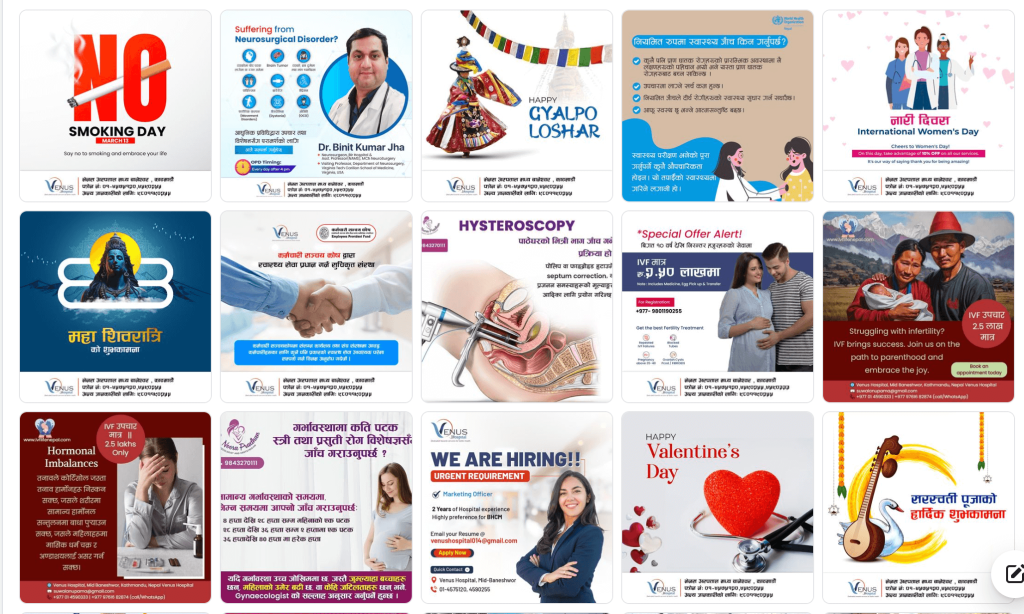
Educational content plays a vital role in digital marketing for healthcare businesses. Articles that provide valuable information about health conditions, treatments, and preventive measures not only establish the credibility of the healthcare provider but also help in attracting and retaining patients.
- Creating Thoughtful Content: Craft valuable content such as blog posts, infographics, and videos to position your hospital as a thought leader. Ensure content addresses patient concerns and interests.
- Tailored Strategy: Formulate a content strategy aligned with hospital objectives and target audience preferences through comprehensive market research.
- Utilizing Animated Figures: Incorporating animated figures can enhance the educational experience for patients. Visual representations simplify complex medical concepts, making them easier to understand. Animated figures can be used in videos, presentations, or on websites to effectively communicate medical information.
- Strategic Promotion: Utilize social media, email marketing, and paid advertising to amplify content reach and engagement.
- Visual representations simplify complex medical concepts, making them easier to understand.
- Decide if your goal is brand awareness, improved patient engagement, driving traffic to your website, or anything else
- Choose the right platforms
- Create a content calendar in advance
- Engage with your audience frequently
- Analyse your results over time
3. Visual Content for Education
Visual content such as infographics, images, and videos is highly engaging and can convey information more quickly and effectively than plain text. Visual content not only grabs attention but also helps convey complex information in a clear and engaging manner. By utilizing visuals such as infographics, videos, and interactive tools, hospitals & healthcare businesses can enhance patient understanding and promote better health outcomes.
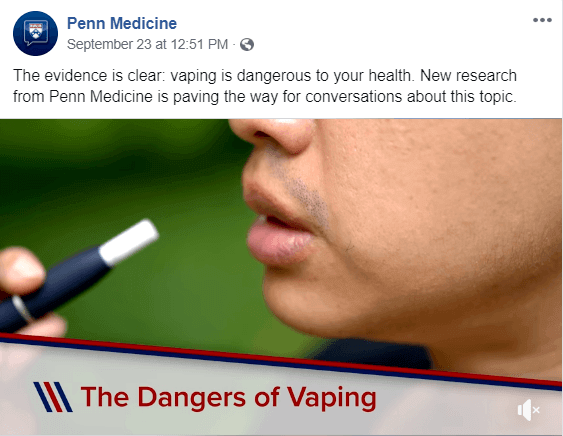
- Providing Quick Access to Information: Patients often seek quick answers to their health-related queries. By providing visual content that succinctly addresses common health concerns, healthcare businesses can cater to the needs of their audience and establish themselves as reliable sources of information.
- Leverage video marketing to engage consumers effectively, particularly in the healthcare sector.
- Incorporate patient stories and informative visuals to build trust and convey complex health information in a simple format.
- Despite the higher production costs, investing in well-produced videos can yield significant returns, as they tend to outperform written content in terms of traffic and conversions.
- Some examples of visually appealing healthcare content
- Interactive Health Infographics
- Medical Illustrations and Diagrams
- Health Awareness Campaign Posters
- Animated Educational Videos
- Infographic Videos
- Interactive Virtual Tours
- User-Generated Health Challenges
4. Patient-Centric Website Development
From easy navigation to real-time functionalities like appointment booking, healthcare websites should prioritize user needs and preferences. By designing websites with patient-centric features, healthcare businesses can improve patient satisfaction and retention.
- Real-Time Utility for Patients: A patient-centric website is designed to prioritize the needs and convenience of patients. Features such as appointment booking, online consultations, access to medical records, and educational resources enhance the user experience and make the website a valuable resource for patients.
- Streamlining Appointment Booking: Streamlining the appointment booking process through the website improves accessibility and convenience for patients. Integrating online appointment scheduling systems simplifies the booking process and reduces administrative burden for both patients and healthcare providers.
5. Multi-Channel Initiatives and Customer Touch Points
Effective marketing requires reaching patients through multiple channels and touchpoints. Whether it’s social media, email, or traditional advertising, healthcare businesses must identify and leverage the channels that resonate most with their target audience. By engaging with patients across various platforms, healthcare businesses can increase brand visibility and foster deeper connections with patients.
Effective digital marketing strategies for hospital businesses involve utilizing multiple channels to reach potential patients. From social media platforms to email marketing and content syndication, diversifying marketing efforts ensures maximum visibility and engagement.
- Enhancing Customer Touchpoints: Every interaction with a patient is an opportunity to build trust and loyalty. Healthcare businesses should focus on delivering exceptional customer experiences across all touchpoints, from the initial inquiry to post-appointment follow-ups.
- Utilize social media platforms to engage with patients, support physicians, and promote population health initiatives.
- Maintain an active presence to attract patients, as online engagement significantly influences healthcare decisions.
- Consider both organic and paid social media strategies to effectively target and reach the desired audience.
Social proof plays a significant role in influencing patient decisions. Hospitals can leverage social media to showcase positive patient experiences, testimonials, and reviews, thereby building trust and credibility among prospective patients. Sharing user-generated content and featuring patient stories humanizes the hospital brand and resonates with audiences on a personal level.
6. Location-Based SEO
For hospitals targeting local patients, local SEO is particularly crucial. Hospitals should ensure that their business listings are accurate and up-to-date across online directories, review sites, and mapping services. Optimizing for local SEO helps hospitals appear prominently in local search results, making it easier for patients to find and contact them.
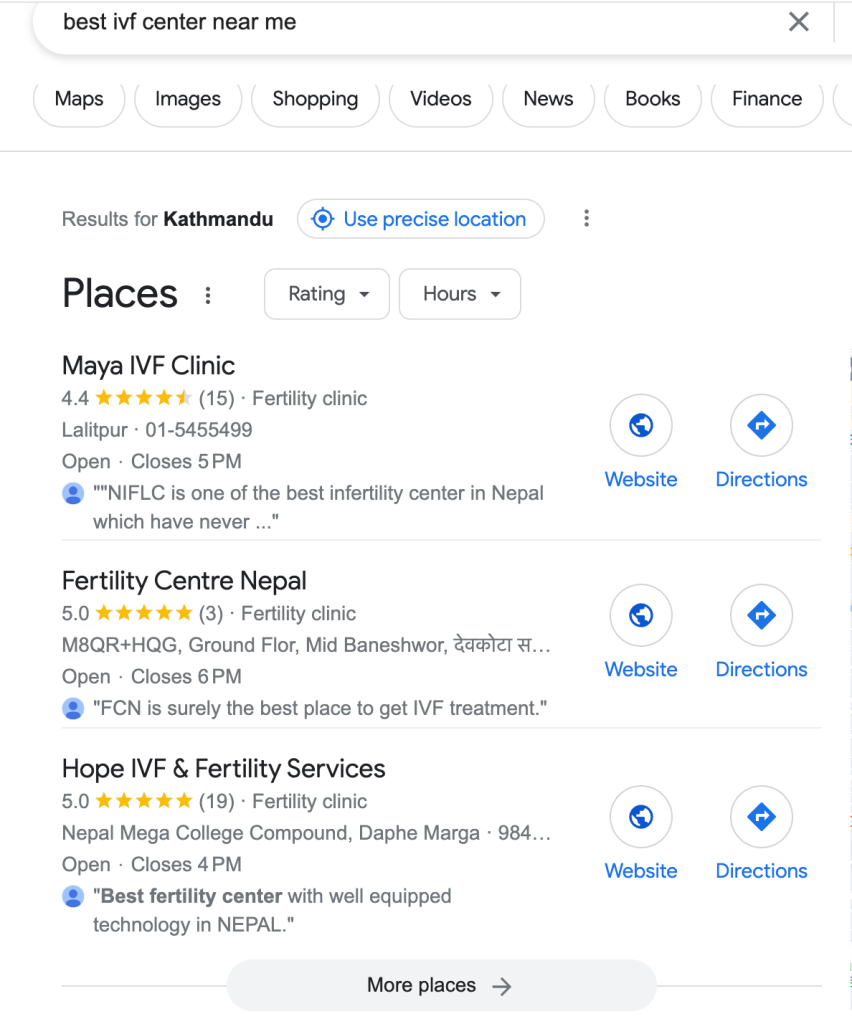
7. Working on Helping Intent Keywords + Right Keywords Strategy
Hospitals must optimize their website content to rank higher in search engine results pages (SERPs) for relevant keywords and phrases. This involves conducting keyword research, optimizing meta tags and descriptions, creating high-quality content, and improving website performance and user experience. Keyword research is a critical component of hospitals & healthcare SEO.
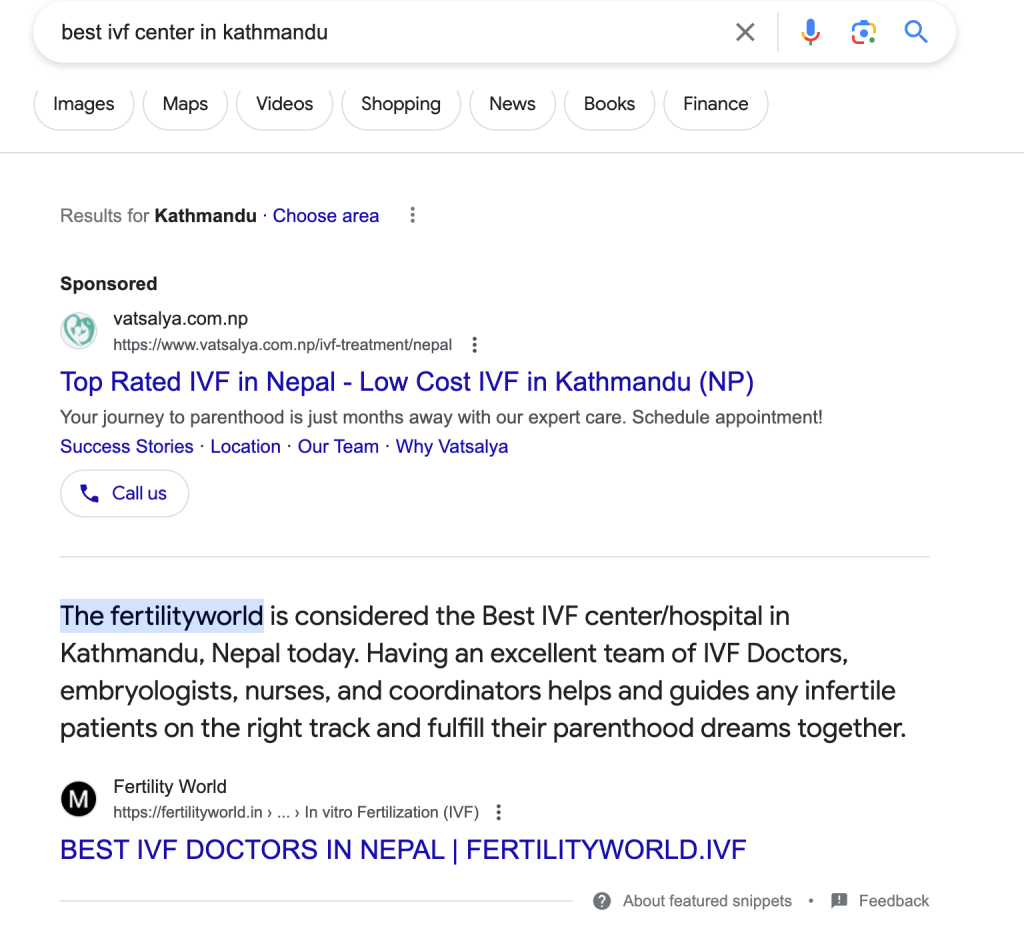
Focusing on helping intent keywords, such as informational queries related to symptoms or treatments, can position healthcare businesses as valuable resources for patients seeking answers to their health concerns.
- Healthcare marketers must prioritize search engine optimization (SEO) to ensure visibility in online searches.
- Utilize relevant keywords, informative page descriptions, and strategic HTML titles to enhance organic content ranking.
- With the increasing use of voice-activated search, tailor content to align with natural language queries.
- Ensure mobile optimization for easy navigation on smartphones, as mobile searches constitute a significant portion of web searches.
8. Patient Reviews and Testimonials
Positive patient reviews and testimonials can significantly impact a hospital’s business reputation and credibility. Encouraging patients to leave feedback and managing online reviews effectively can help build trust and confidence among prospective patients.
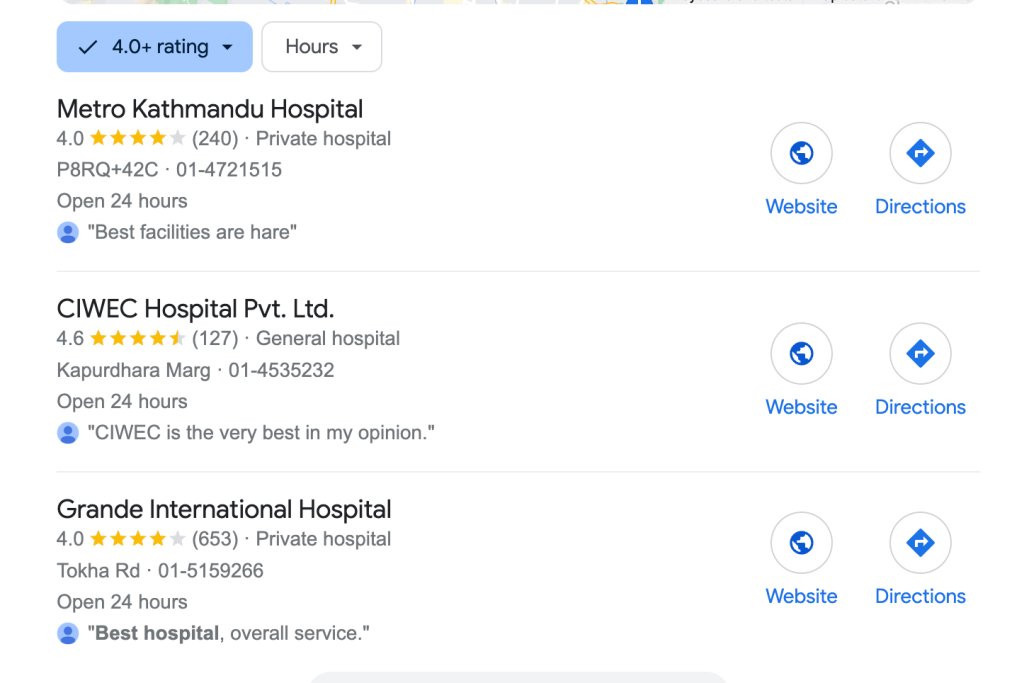
By showcasing positive experiences and outcomes, healthcare businesses can differentiate themselves from competitors and attract new patients.
9. Personalized Email Marketing
Personalization is key to success in email marketing, as it allows healthcare businesses to deliver relevant and targeted content to their audience. By segmenting email lists based on patient preferences and behavior, healthcare businesses can deliver tailored messages that resonate with recipients.
- Optimize email marketing for mobile delivery with responsive design to enhance readability and engagement.
- Focus on educational content to provide valuable information and drive conversions effectively.
- Prioritize privacy and sensitivity when addressing healthcare-related topics in email content to avoid instilling unnecessary fear or disclosing sensitive patient information.
10. Paid Advertising Strategies for Hospitals
While organic reach is valuable, hospitals can supplement their digital marketing efforts with paid advertising to maximize visibility and reach specific audiences.
- Google Ads for Hospital Services: Google Ads allow hospitals to target users actively searching for healthcare services and information. Hospitals can create targeted ad campaigns based on keywords related to their services, specialties, and geographic location, ensuring that their ads appear prominently in relevant search results.
- Social Media Advertising for Healthcare Campaigns: Social media advertising for hospitals to reach and engage with target audiences. Hospitals can create highly targeted ad campaigns on platforms such as Facebook, Instagram, and LinkedIn, leveraging demographic, behavioral, and interest-based targeting to reach prospective patients effectively.
- Here are a few tips for using paid advertising effectively for hospitals:
- Determine your goals before you start running paid ads
- Identify your target audience by conducting market research or analysing your website data
- Choose the right advertising platform
- Use compelling and relevant ad copy and visuals
- Analyse your results to optimise your strategy and improve your results over time
Top Social Networks for Hospitals & the Healthcare Sector
1. Facebook for Healthcare Promotion
Facebook stands out as the pinnacle of social media platforms, boasting the largest user base worldwide. Harnessing its potential can profoundly benefit your hospital’s outreach efforts.
Engage Your Audience with Informative Updates
Utilize Facebook to disseminate crucial updates and events related to your practice:
- Announce upcoming open houses to attract community engagement.
- Remind patients about seasonal health concerns or vaccination drives.
- Notify individuals about any construction activities affecting access to parking facilities.
Facebook serves as a primary reference point for both existing and potential patients. Ensuring easy access to your hospital’s Facebook page facilitates seamless communication and fosters trust among your audience.
2. Instagram for showcasing Hospital Culture and Values
Instagram offers a unique opportunity for hospitals to humanize their brand and showcase their culture and values through captivating visual content.
Behind-the-Scenes Glimpses
Share behind-the-scenes glimpses of daily life within the hospital:
- Introduce staff members and highlight their roles and contributions.
- Showcase events, workshops, and community outreach initiatives.
- Offer a glimpse into the hospital’s facilities, equipment, and technological advancements.
By providing authentic and relatable content, hospitals can build trust and credibility among their audience, demonstrating transparency and a commitment to patient care.
3. Video Content with YouTube
YouTube emerges as a dynamic platform for sharing engaging and informative content through visual media. Hospitals can utilize this platform to deliver valuable information in an easily digestible format.
Enhance Patient Education through Visual Content
Create compelling video content to educate and engage your audience:
- Replace traditional information packets with concise videos explaining hospital policies and procedures.
- Offer insights into specialized medical services and treatments offered at your facility.
- Showcase success stories or patient testimonials to instill confidence and trust.
YouTube offers a unique opportunity to captivate audiences with visually stimulating content. Leveraging creativity and innovation can lead to increased viewership and potential viral reach, amplifying your hospital’s online presence.
4. Building Professional Networks with LinkedIn
LinkedIn serves as the go-to platform for professional networking and industry-related discussions. While its use may vary across different sectors, healthcare organizations can leverage it to establish authority and foster meaningful connections.
Enhance Industry Presence and Expertise
Engage in substantive discussions and knowledge-sharing on LinkedIn:
- Participate in industry-specific dialogues and forums.
- Establish your hospital’s reputation as a leading research or teaching institution.
- Demonstrate expertise by providing insightful answers to healthcare-related queries.
5. Twitter: Broadcasting Healthcare Breakthroughs
Think of Twitter as your healthcare facility’s real-time news outlet. It’s the perfect platform for broadcasting noteworthy developments in the medical field and raising awareness about pertinent health issues.
Share Timely Updates and Milestones
Leverage Twitter to broadcast significant achievements and updates:
- Share findings from new studies conducted by hospital staff.
- Announce accolades received by your medical professionals.
- Spotlight news features or articles showcasing your hospital’s contributions to the community.
Ensuring Compliance and Patient Privacy
In the healthcare sector, patient privacy and data security are paramount considerations in digital marketing initiatives.
Adhering to HIPAA Regulations
Hospitals must ensure compliance with the Health Insurance Portability and Accountability Act (HIPAA) when collecting, storing, and using patient information for digital marketing purposes. This includes implementing appropriate safeguards to protect patient data and obtaining patient consent where required.
Safeguarding Patient Information in Digital Marketing Campaigns
Hospitals should prioritize the security and confidentiality of patient information in all digital marketing activities. This may involve encrypting data transmissions, using secure authentication methods, and adhering to industry best practices for data protection. By safeguarding patient information, hospitals can build trust and credibility with patients and maintain compliance with regulatory requirements.
Case Studies: Successful Digital Marketing Campaigns in Healthcare
Examining real-world examples of successful digital marketing campaigns can provide valuable insights and inspiration for hospitals looking to elevate their marketing efforts.
Examples of Hospitals Implementing Effective Strategies
Case studies highlight hospitals that have achieved notable success in digital marketing, whether through innovative content campaigns, targeted advertising initiatives, or strategic use of social media. By studying these examples, hospitals can learn from best practices and apply similar strategies to their marketing endeavors.
Here are two case studies highlighting the successful implementation of digital marketing strategies in the healthcare sector:
Case Study 1: Dental Clinic Leverages Digital Marketing for Patient Acquisition
A local dental clinic was facing challenges in attracting new patients and maintaining a steady flow of appointments. They partnered with a digital marketing agency to revamp their online presence and implement targeted marketing campaigns.
Strategies Implemented:
- Website redesign and optimization for better user experience and search engine visibility
- Creation of engaging social media content, including educational videos and patient testimonials
- Launch of targeted advertising campaigns on Google and Facebook, focusing on specific demographics and locations
Results:
- Significant increase in website traffic, with a 35% rise in new visitors
- Improved lead generation, with a 25% increase in appointment requests from online sources
- Overall growth in patient bookings, with a 20% increase in new patient appointments
The dental clinic’s strategic digital marketing efforts enabled them to reach their target audience effectively, establish a strong online presence, and ultimately drive patient acquisition and revenue growth.
Case Study 2: Hospital Enhances Online Reputation and Patient Engagement
A renowned hospital sought to improve its online reputation and foster better patient engagement to maintain its position as a trusted healthcare provider in the community.
Strategies Implemented:
- Development of a comprehensive content strategy for the hospital’s blog, covering various health topics and treatment options
- Optimization of the website and content for improved search engine rankings (SEO)
- Active monitoring and professional response to online reviews on platforms like Google and Healthgrades
- Implementation of a social media management plan to engage with patients and share valuable health-related information
Results:
- Significant improvement in search engine rankings for relevant keywords, resulting in increased website traffic
- Enhanced brand awareness and credibility among potential patients through informative and engaging content
- Improved online reputation and patient satisfaction by addressing negative feedback promptly and effectively
- Increased patient engagement and trust through consistent social media presence and valuable content sharing
By leveraging digital marketing strategies, the hospital successfully enhanced its online reputation, fostered patient engagement, and solidified its position as a trusted healthcare provider in the community.
Challenges and Opportunities in Digital Marketing Strategies for Hospitals
While digital marketing offers immense potential for hospitals, it also presents various challenges and opportunities that must be navigated effectively.
Addressing Regulatory Constraints
The healthcare sector is subject to strict regulatory requirements and compliance standards, which can pose challenges for digital marketing efforts. Hospitals must navigate regulatory constraints such as HIPAA regulations, data privacy laws, and advertising guidelines while still effectively reaching and engaging with patients.
Leveraging Emerging Technologies for Better Patient Engagement
Despite the challenges, emerging technologies present exciting opportunities for hospitals to enhance patient engagement and improve healthcare outcomes. From telemedicine and virtual care platforms to wearable devices and health tracking apps, hospitals can leverage technology to deliver more personalized and convenient healthcare experiences to patients.
Future Trends in Healthcare Digital Marketing
Looking ahead, several key trends are shaping the future of digital marketing in the healthcare sector.
Artificial Intelligence and Machine Learning Applications
Artificial intelligence (AI) and machine learning are revolutionizing healthcare digital marketing by enabling more personalized and predictive experiences. AI-powered chatbots, predictive analytics, and natural language processing (NLP) algorithms can enhance patient interactions, automate marketing workflows, and deliver targeted messaging at scale.
Telemedicine and Remote Patient Care
The rise of telemedicine and remote patient care is transforming how healthcare services are delivered and accessed. Hospitals can leverage telehealth platforms and virtual care technologies to expand their reach, provide more accessible healthcare services, and engage with patients beyond traditional care settings.
Conclusion
In conclusion, digital marketing plays a critical role in helping hospitals navigate the complexities of the healthcare sector, reach patients effectively, and drive positive outcomes. By developing comprehensive digital marketing strategies tailored to the unique needs and preferences of their target audience, hospitals can enhance visibility, build trust, and ultimately improve patient care and satisfaction.
If you’re seeking assistance in developing and maintaining a robust healthcare social media marketing strategy, look no further than Softbenz.
At Softbenz, we specialize in supporting healthcare organizations like yours in creating compelling social media presences, ensuring consistent updates, and effectively attracting new patients. We understand the unique challenges and opportunities within the healthcare sector, and our experienced team is dedicated to helping you maximize the potential of social media for your hospital.
If you’re curious about the impact that social media can have on your hospital’s growth and engagement, we invite you to reach out to us. We offer a complimentary consultation where we can discuss your specific needs and goals, and provide you with a customized quote tailored to your requirements.
FAQs
What are the main benefits of digital marketing strategies for hospitals?
Digital marketing enables hospitals to reach a broader audience, engage with patients across multiple channels, and deliver personalized healthcare experiences. It also allows hospitals to track and measure the effectiveness of their marketing efforts, optimize campaigns for better results, and stay competitive in a rapidly evolving landscape.
How can hospitals personalize their digital marketing efforts?
Hospitals can personalize their digital marketing efforts by leveraging patient data and preferences to deliver targeted messaging and content. This may include segmenting email lists, tailoring website content based on user behavior, and creating customized advertising campaigns that resonate with specific patient demographics.
What role does social media play in the healthcare sector?
Social media serves as a powerful platform for hospitals to engage with patients, share educational content, and build relationships. It allows hospitals to humanize their brand, showcase expertise, and address patient inquiries and concerns in real-time. Social media also enables hospitals to amplify their reach, connect with new audiences, and foster community engagement.
How can hospitals measure the success of their digital marketing campaigns?
Hospitals can measure the success of their digital marketing campaigns by tracking key performance indicators (KPIs) such as website traffic, conversion rates, patient engagement metrics, and return on investment (ROI). By analyzing these metrics, hospitals can assess the effectiveness of their campaigns, identify areas for improvement, and make data-driven decisions to optimize outcomes.
What are the ethical considerations in healthcare digital marketing?
Ethical considerations in healthcare digital marketing revolve around patient privacy, data security, and compliance with regulatory requirements such as HIPAA. Hospitals must safeguard patient information, obtain appropriate consent for data use, and ensure transparency and accountability in their marketing practices. Additionally, hospitals should prioritize patient welfare and avoid misleading or deceptive marketing tactics that could compromise trust and credibility.
- How to Optimize for Zero-Click Searches? Is It Bad for SEO?
- Metaverse Marketing: Social Media Marketing in the Metaverse
- What is On Page Optimization? Keyword, URL, Meta Tags, ALT Tags & MORE!
- AI vs Human Copywriting: 10 Reasons Why Human Copy is Better Than AI
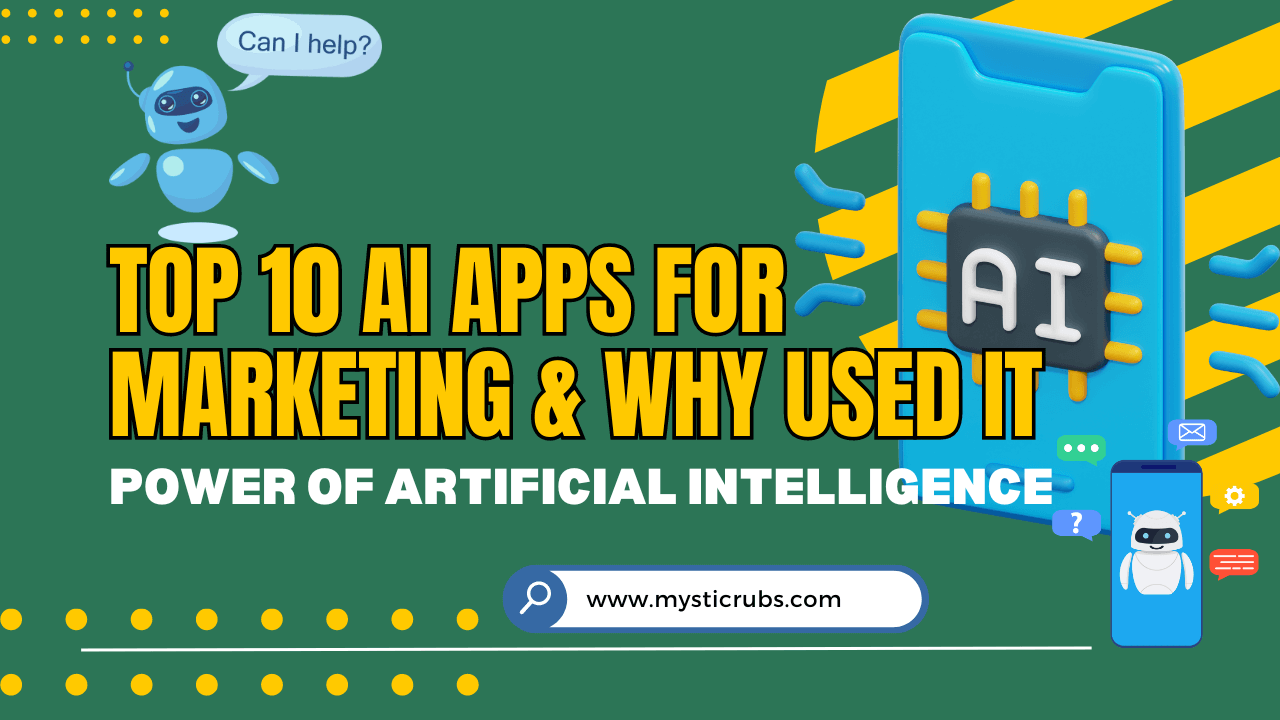

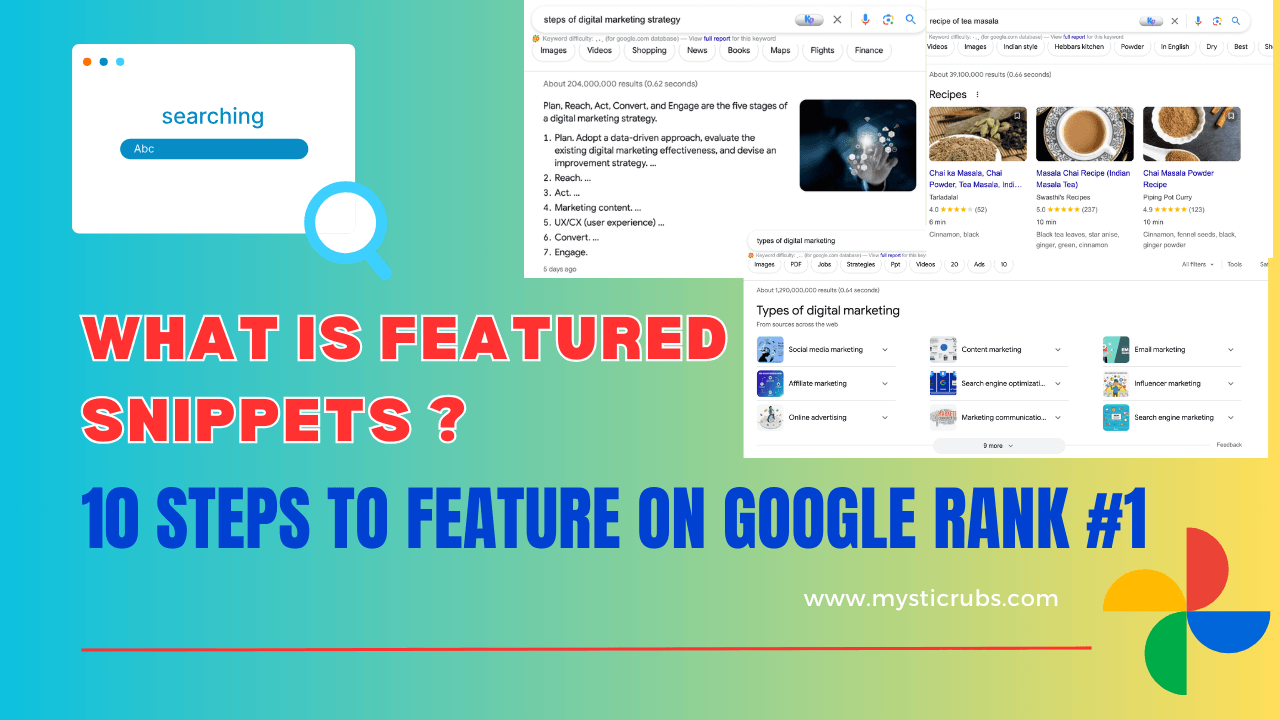
![[2025 Updated] Top 10 Digital Marketing Agencies in Nepal Ranked!](https://mysticrubs.com/wp-content/uploads/2022/05/top-10-digital-marketing-company-in-nepal.png)
